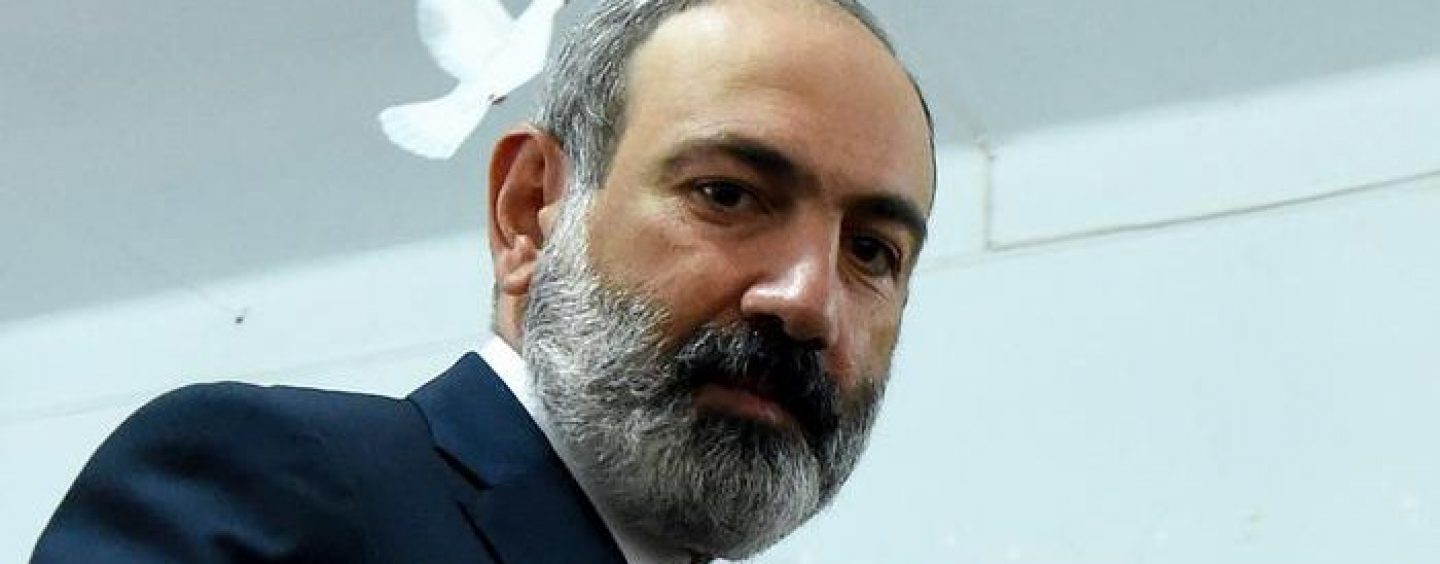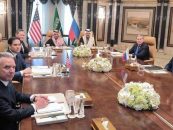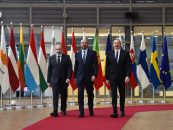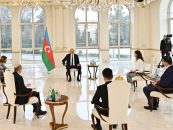
Between Two Fires, Armenia Chooses Defeated Premier To Steer Clear Through Political Turbulence
By Fuad Muxtarli
By a decisive victory in the 44-day Second Karabakh War in 2020, Azerbaijan avenged Armenia for the defeat in the first Karabakh war of 1990-1994, teaching it and its supporters an unforgettable lesson.
After nearly eight-month-long protests and confrontation inside Armenia, Prime Minister Nikol Pashinyan has survived all-out pressure, disloyalty of cabinet members, the military top brass and led his Civil Contract Party to a landslide victory in the 20 June 2021 parliamentary elections.
Prime Minister Nikol Pashinyan’s Civil Contract party garnered 53.91% of the votes. Second came the Armenia alliance led by former President Robert Kocharyan with 21.09% and the I Have Honour alliance of former President Serzh Sargsyan finishing third with 5.22% of the votes.
The results of the watershed parliamentary elections in Armenia in the wake of the Pashinyan government’s humiliating defeat surprised and will surprise many observers in years to come. Anticipating the sitting government’s crushing defeat, the tandem of former Armenian presidents standing in the elections separately had strong hopes to make a sharp comeback to have the sitting prime minister’s guts for garters. However, the Armenian electorate watered down the opposition’s calculations to overthrow Pashinyan’s fractured government and mandated it for another term to rule the tiny nation.
Nikol Pashinyan’s win in the snap parliamentary elections is considered a sensation. This came as a surprise not only to foreign observers and experts, but also to many in Armenia. Expert comments boil down to the fact that the latent hatred of the former authorities and the people of Karabakh turned out to be stronger than the negative towards Nikol Pashinyan.
Armenia has chosen peace with Azerbaijan and Russia endorsed the election results, thus signaling the odious leaders of the Karabakh clan in Armenia that their anti-government moves would not be backed by the Kremlin. Armenia does not any longer want another war and the majority of the voters have forgiven Nikol Pashinyan for the heavy defeat in the second Karabakh war, preferring the sitting prime minister to former presidents Ter-Petrosyan, Robert Kocharyan and Serzh Sargsyan, whose roles in the abject poverty of the country and in the exodus of population from Armenia are immeasurable.
Armenians want the implementation of the peace agreements, unblocking communications, craving for economic development. Pashinyan’s victory opens up new horizons for peace for the South Caucasus and creates opportunities for the historic reconciliation between Armenia and Azerbaijan. Armenia actually voted for the implementation of the Moscow-brokered agreements between Yerevan and Baku, backing peace with Azerbaijan.
The major issues and obstacles that lie ahead of Pashinyan’s new government are numerous. The incoming Armenian government has to revamp the image of the Armenian statehood, refuse to abide by the Dashnak ideas, end claims on alien lands. The revanchist sentiments in the republic are serious and almost all political parties are driven by far-right ultra-nationalists agendas.
Issues on the agenda are pivotal for the establishment of lasting peace and stability in the South Caucasus. Yerevan is to honor the political obligations undertaken after defeat in the war and urgently hammer out a deal for border delimitation and demarcation, to unblock transport communications. The incoming government is to adjust Armenia’s economic life so that it can recover from the defeat and readjust the economy to the path of recovery under the existing realities.
Armenia desperately needs to change the traumatized public consciousness, tuned in to revenge, and redirect its energy into a meaningful activity. Armenians must renounce revenge and embrace calls for revival. In the long term, this will lead to the normalization of relations, the transfer of the economies of the two countries on a peaceful track, reduce defense spending and facilitate the withdrawal of the Russian peacekeepers from Karabakh.
Armenia has to be persuaded to assume obligations commensurate with regional requirements to avoid further deteriorations. Pashinyan seems not vociferous opponent of restoring the Zangazur corridor. In this regard, the restoration of communications corridor between Azerbaijan and its exclave Naxcivan and Turkey is not only a matter of economic or geopolitical benefits, but also the cornerstone of maintaining the regional peaceful status quo.
The implementation of this project is beneficial to all the countries involved, not to mention the neighbors, for whom peace on the borders is extremely important. Nikol Pashinyan also backs the construction of the railway through Armenia to Turkey and has to rally all the interested forces behind this issue without looking back to possible protest and blackmail of the opponents wishing his failure.
The Armenia prime minister is also the most acceptable candidate for the international community, including for Baku and Ankara. He enjoys both the West’s and Russian support. Although the crushing defeat in the occupied Azerbaijani Karabakh, he has preserved the statehood. He made a courageous decision, realizing that Armenia is not, in principle, capable of any kind of military action and was doing something wrong in the confrontation with Azerbaijan and made the only right decision, to which, of course, both Baku and Moscow pushed him, and signed a peace deal.
Pashinyan has repeatedly spoken in favor of friendly relations with Azerbaijan and Turkey though the large number of his opponents, who built their entire political career only on hateful sentiments towards their neighbors, do not realize it. The unfolding post-war developments will further decrease Nikol Pashinyan’s dependence on Russia once he signs a peace treaty with Azerbaijan and abandons territorial claims to Azerbaijan and Turkey.
If Pashinyan decides to wider open a window on the West, it will probably be through Turkey. Direct business relations with Turkey will lead to the revival of the Armenian economy. The opening of communications lines with Azerbaijan and the restoration of economic relations will serve the development of the Armenian economy.
Azerbaijan as overarching factor
Azerbaijan seems happy about the outcome of the snap parliamentary elections. This is a good sign for the region as urgent issues in the pipeline need the formal approval of the incoming Armenian government.
Azerbaijan, proceeding from the norms and principles of international law, is advocating the restoration of relations with Armenia based on the principles of inviolability of borders and territorial integrity.
“Yesterday, early parliamentary elections were held in Armenia, and a new government is expected to be formed. We believe that the Armenian government, having analyzed the causes of the crisis, will draw the right conclusions,” was the initial official reaction of Azerbaijan.
The election results, of course, give a chance to start a full-scale peace process in the region. Another question is that this is a chance, not a guarantee. Azerbaijan has both the strength and potential, and an action plan for any option. Baku and Moscow see eye to eye on most of the issues related to the Azerbaijani and Armenian post-war normalization process.
Russian factor
Russian President Vladimir Putin though a bit late congratulated the winner of the Armenian elections.
Kremlin Spokesman Dmitry Peskov has said that Prime Minister Nikol Pashinyan’s party has won a “convincing victory” in Armenia’s parliamentary election.
Russia will not lose Pashinyan as an ally, even openly playing against him in the elections. The fact that Russia openly relied on Pashinyan’s opponents, perhaps, only played into his hands. The phony opinion polls from the Russian media showing the leadership of the opposition forces, custom-made rallies performed by Gazprom-Armenia, a friendly chorus of Russian Armenians – active figures in the Kremlin propaganda machine – all this set up a protest mood even for those who had long been disillusioned with Pashinyan himself.
Armenia plays a far from dominant role here; Russia provides security for Armenia, but nothing more. If Armenia itself begins to build its relations in terms of establishing ties with neighbors, restoring economic, joint projects with Russia, Turkey, and Azerbaijan, then it will have a future.
The Russian factor still plays an important role in Armenia. However, the question is whom Russia staked on in the elections. During the 44-day war, the situation at certain moments was critical for the Armenian prime minister and only the Kremlin boss’ support helped him to hold on.
Moscow did not try to blame the Armenian prime minister for the defeat, to displace or turn the Armenian society against him. On the contrary, the Russian leader made certain curtsies in his direction, making it clear to the Armenian society that Moscow is comfortable about working with him and his team. In addition, despite the fact that Pashinyan was stubbornly called a pro-Western politician, Moscow did not particularly interfere in the elections.





